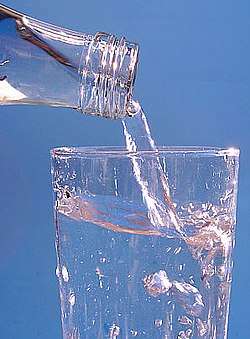ae
See also: Appendix:Variations of "ae"
English
Etymology 1
From Scottish Middle English a-, from Old English ān (“one”); see also a.
Pronunciation
IPA(key): /i/, /e(ː)/, /ə/
Etymology 2
Variant form of æ.
Pronunciation
IPA(key): /iː/, /eɪ/, /ə/
See also
References
- “ae” in The American Heritage Dictionary of the English Language, 4th edition, Boston, Mass.: Houghton Mifflin, 2000, →ISBN.
- “ae” in Dictionary.com Unabridged, Dictionary.com, LLC, 1995–present.
Abinomn
Aore
Danish
Pronunciation
- IPA(key): /aːə/, [ˈæːæ]
- Rhymes: -aːə
Eastern Ngad'a
References
- Greenhill, S.J., Blust. R, & Gray, R.D. (2008). The Austronesian Basic Vocabulary Database: From Bioinformatics to Lexomics. Evolutionary Bioinformatics, 4:271-283.
Ende

wai
Etymology
From Proto-Central-Eastern Malayo-Polynesian *waiʀ, from Proto-Malayo-Polynesian *wahiʀ.
References
- Bradley J. McDonnell, Possessive Structures in Ende: a Language of Eastern Indonesia
Irish
Pronunciation
- IPA(key): [eː]
Etymology 1
From Middle Irish áe (“liver”), from Old Irish óa.
Declension
Declension of ae
Derived terms
- aelus m (“liverwort”)
- domlas ae m (“bile”)
- ola ae troisc f (“cod-liver oil”)
- puchán ae m (“fluke”)
Etymology 2
Declension
Declension of ae
Fourth declension
|
Bare forms (no plural of this noun)
|
Forms with the definite article
|
Mutation
| Irish mutation | |||
|---|---|---|---|
| Radical | Eclipsis | with h-prothesis | with t-prothesis |
| ae | n-ae | hae | t-ae |
| Note: Some of these forms may be hypothetical. Not every possible mutated form of every word actually occurs. | |||
Further reading
- "ae" in Foclóir Gaeilge-Béarla, An Gúm, 1977, by Niall Ó Dónaill.
- “1 áe ("liver")” in Dictionary of the Irish Language, Royal Irish Academy, 1913–76.
- Entries containing “ae” in English-Irish Dictionary, An Gúm, 1959, by Tomás de Bhaldraithe.
- Entries containing “ae” in New English-Irish Dictionary by Foras na Gaeilge.
Kala
Pronunciation
- IPA(key): /ɑe/
Further reading
- Malcolm Ross, Proto Oceanic and the Austronesian Languages of Western Melanesia, Pacific Linguistics, series C-98 (1988) (ai)
- Morris Johnson, Kela Organized Phonology Data (1994) (ae)
Latin
Participle
ae
References
- ae in Charlton T. Lewis and Charles Short (1879) A Latin Dictionary, Oxford: Clarendon Press
- ae in Charles du Fresne du Cange’s Glossarium Mediæ et Infimæ Latinitatis (augmented edition, 1883–1887)
Li'o

ae
Etymology
References
- P. Sawardo, Struktur bahasa Lio (1987)
- Louise Baird, A Grammar of Kéo: An Austronesian Language of East Nusantara (2002) ('aé)
Middle Welsh
Pronunciation
- IPA(key): /aɨ̯/
Conjunction
ae ... ae
- either ... or
- Pwyll Pendeuic Dyuet:
- Sef kyfryw chware a wneynt, taraw a wnai pob un dyrnawt ar y got, ae a’e droet ae a throssawl;
- In this manner they played the game, each of them striking the bag, either with his foot or with a staff.
- Sef kyfryw chware a wneynt, taraw a wnai pob un dyrnawt ar y got, ae a’e droet ae a throssawl;
- Pwyll Pendeuic Dyuet:
Portuguese
Etymology
Corruption of aí.
Scots
Etymology
From Scottish Middle English a-, from Old English ān (“one”); see also a.
Pronunciation
References
- The Concise Scots Dictionary, 1985, Aberdeen University Press editor-in-chief Mairi Robinson, →ISBN
This article is issued from
Wiktionary.
The text is licensed under Creative
Commons - Attribution - Sharealike.
Additional terms may apply for the media files.